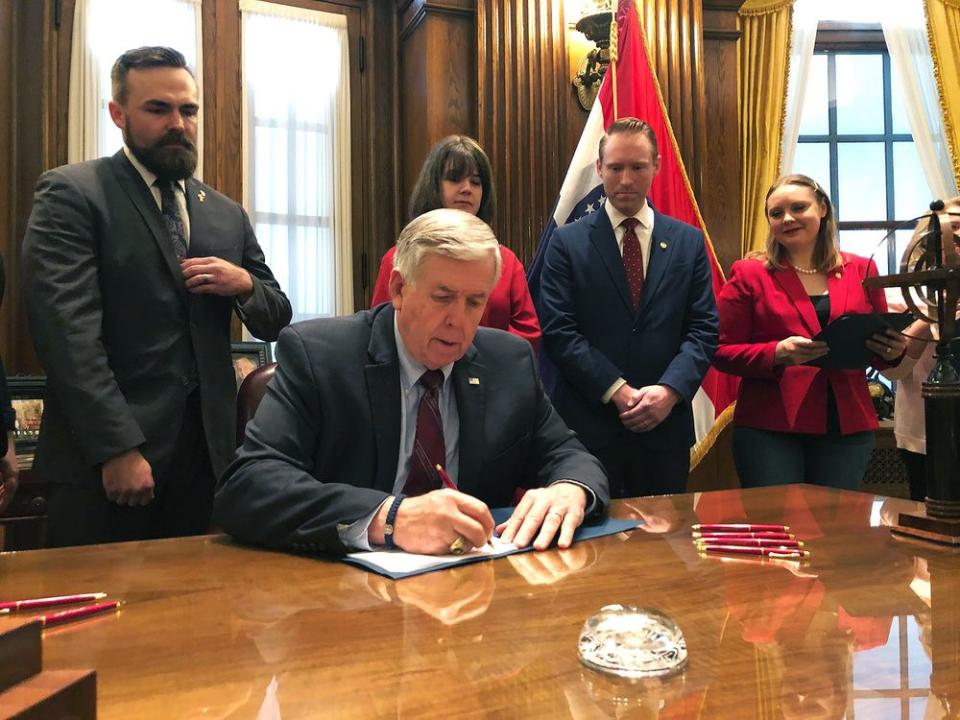Missouri Governor Signs Bill Criminalizing Abortions After 8 Weeks of Pregnancy
Missouri has officially become the latest state to sign an anti-abortion bill into law.
On Friday, Gov. Mike Parson put his signature on the bill called HB 126, also known as the Missouri Stands for the Unborn Act, which prohibits an abortion past eight weeks of gestational age.
The version of the legislation, signed by Parson and goes into force on August 28, does not have exceptions for victims of rape or incest, according to NPR and CNN. However, it does include exceptions for medical emergencies such as when a mother’s life is at risk or she is facing serious permanent injury.
Under HB 126, any person who performs an abortion after eight weeks could be charged with a Class B felony punishable by five to 15 years in prison.
“By signing House Bill 126 today, we are sending a strong signal to the nation that, in Missouri, we stand for life, protect women’s health, and advocate for the unborn. All life has value and is worth protecting,” Parson said in a statement.
Parson has previously said that he intends to make Missouri “the most Pro-Life state in the country.”
RELATED: Here’s What You Should Know About the New Wave of Anti-Abortion Laws

Last Friday, Missouri legislators passed the bill banning abortions after eight weeks of pregnancy.
This came on the heels of Alabama, which passed the most restrictive law in the country just two days before, that essentially bans all abortions — also including those for victims of rape or incest.
Alabama’s bill, along with the “heartbeat bills” that Georgia and several other states — including Ohio, Kentucky, Mississippi, Utah and Arkansas — have passed, are a violation of the 14th amendment, which the Supreme Court determined in the landmark Roe v. Wade case.
RELATED: Lady Gaga, Rihanna, Chris Evans and More Stars React to New Restrictive Abortion Bills
Anti-abortion lawmakers hope that these bills will lead to lawsuits and eventually head to the Supreme Court, where the newly conservative bench could reverse the Roe v. Wade decision.
“Alarmingly, the conservative majority on the Supreme Court showed its willingness to overturn longstanding precedent,” Elizabeth Nash, a legal expert of the Guttmacher Institute, recently told PEOPLE. “With four abortion cases already on the Supreme Court’s doorstep, and more making their way through lower courts, anyone who still thinks Roe v Wade is not under threat needs to adjust fast.”
During his 2016 presidential campaign, Donald Trump vowed to appoint Supreme Court justices who would undo Roe vs. Wade.

